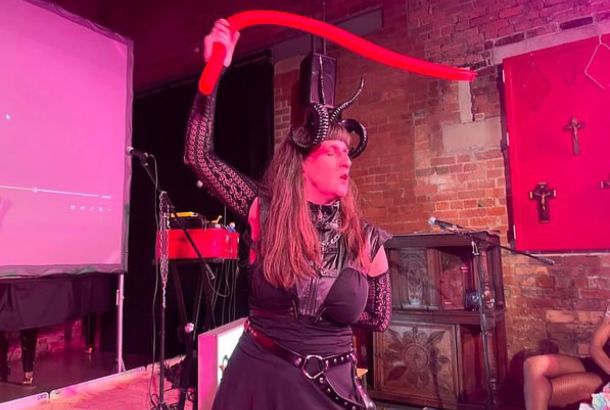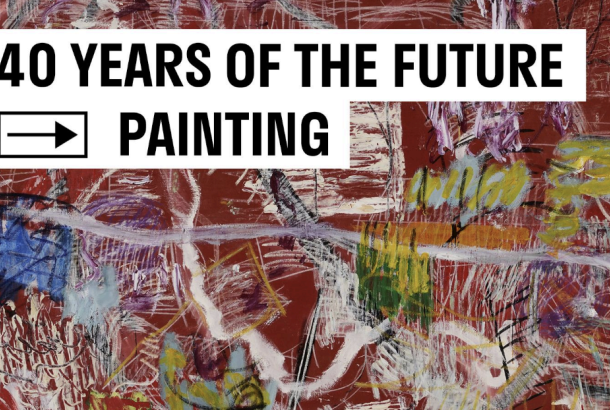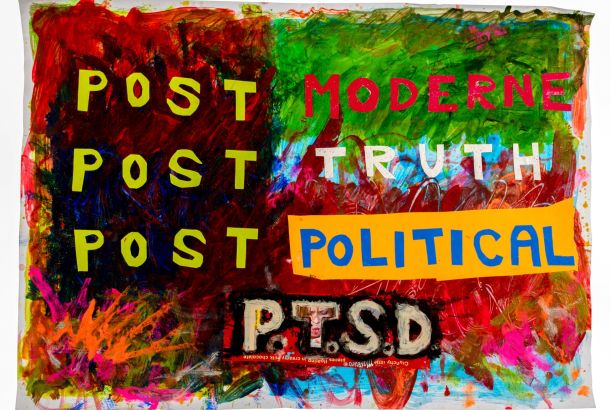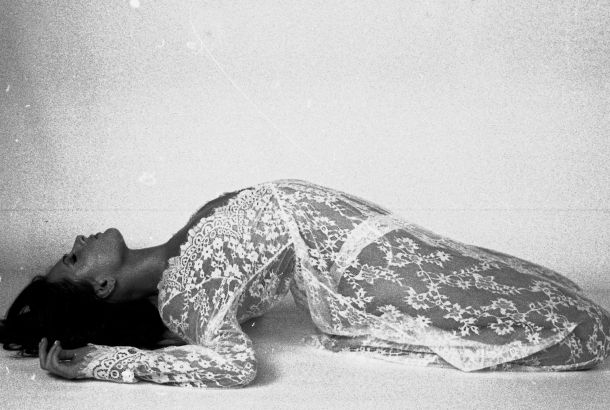Imagining a better future: Sustainable art with Jessica El Mal

Jessica El Mal is a British-Moroccan artist and curator based in Manchester. She produces multimedia artworks addressing ecology, globalisation, and migration. Her practice is multidisciplinary, combining artworks with social interaction and critical research.

In the midst of growing climate injustice and anxiety, her work challenges viewers to picture a better, more equitable future. I talked to El Mal about the role of art in making this imagined future possible, and how her curatorial venture, A.MAL Projects, has expanded her practice.
While studying at Manchester School of Art, El Mal developed an interest in community-led work and her final year project was a protest art installation. After graduating, she continued to develop her practice in this way.
“I began working with more community groups and commissions, so my practice naturally moved towards a mix of artistic work and curation. I’m very interested in co-produced work and the idea of giving up authorship, allowing multiple people to be the artist.”
Collective working has played an important role in El Mal’s artistic career for a while now. For her final piece at BA level, she worked in collaboration with another student, a decision which initially threw the examiners. El Mal and her collaborator set a new precedent at the art school, catalysing the creation of new frameworks for group work. But the idea of collaboration goes beyond simply working with others. As El Mal puts it “All art is borrowed, we take influences from everywhere. The thing that’s important for me is always to credit sources.”
She touches on a long-standing tradition within art history where artists like Picasso “borrowed” from other cultures and traditions, without giving credit. “It’s really important when you’re working with communities to discuss how those communities want to be named and to allow those conversations to be part of the project.”
Similarly, installation art is still a key part of El Mal’s practice. “My work always has lots of layers and different references. I find installation is a useful medium for providing those layers, in physical installations you can use the room to add different aspects.” This includes adding non-visual dimensions. Sound is an important mode of expression within El Mal’s work, “hearing is the most personal sense for me because it’s so direct, it has that ability to make the hairs on the back of your neck stand up. When you add sound, you can transport the viewer.”
El Mal’s view on sustainability in her practice and the art world at large is refreshing. Taking a more holistic view of sustainable working, she says, “I think there can be a tendency to put a little bit too much emphasis on materials.” For El Mal, environmentally conscious art-making must go beyond materials and the “authoritarian approach,” which can govern the process. She explains, “With all material culture there are problems; I’m trying to think less in terms of ‘good’ or ‘bad’ materials and more about the actual processes and how I critique them. Whether that be in terms of electricity, or carbon, or human energy.”

El Mal’s work tackles some complex and important subjects. Her art explores the interconnectedness of colonialism, neo-colonialism, migration, and climate injustice. However, despite the heaviness of the subjects, there is a sense of optimism in her work. This is embodied by her curatorial work with A.MAL Projects. A.MAL Projects emerged in the lockdown brought on by the pandemic. “Like many people, I was feeling very isolated by the situation and needed some connection. Also, I have family in Morocco, and I was feeling the effects of the travel restrictions.” These feelings spurred El Mal to create A.MAL Projects, an art and research initiative using speculative art to critique contemporary global issues, particularly in a North African context. “I wanted to create a way for artists to connect and collaborate within the confines of their localities.”
The first project was an online residency, working with two artists in the UK and three artists in Morocco. The residency, Agar Red Gold, focused on an algae, sourced in Morocco and used in British commerce. The mineral-rich, red-gold algae is often used as a sustainable alternative to plastics and as a food supplement, but the demand for it means it is now virtually extinct in Morocco.
During the residency, the artists critiqued the various economic and social factors affecting the use of this material, considering issues like working conditions and the flow of information and knowledge from the Global South to the Global North. “We had loads of Zoom calls, and there was a bit of money for people to go on research trips within their own Covid restrictions. We wanted to see if an online residency was something that could work and how each artist could benefit from it.”
Working online wasn’t the only learning curve in starting A.MAL Projects. “It started just me and I did an open call, not knowing where it was going or knowing much about organisational structures.” The risk paid off though as El Mal says, “On that first residency we connected so well and so deeply, which was unexpected for an online project.”

Since the first project, A.MAL Projects has continued as a fluid entity, allowing artists to be involved as much or as little as they want, and to utilise different skills and interests. “People can dip in and out when they see fit. For example, Elodie Sacher and I have used it to explore our curatorial interests, so finding funding and commission opportunities. But we have members like Younes El Hossaini who’s more of a video technician, so he comes in when we do anything related to that, and Sabrina Mumtaz Hassan who works in research and performance.”
The name A.MAL stems from the Arabic word for hope. “The reason we put the dot in between the A and the Mal is that in Latin languages, mal has negative connotations.” The name signifies that “we’re recognising and critiquing the bad things but with an overarching sense of hope.” Partly, this framework for art-making is a way to tackle climate anxiety and the feelings of doom that can dominate conversations about the future of the planet. But it also steers away from the limits often placed on artists from a global majority background. El Mal explains, “There’s often a tendency to tokenise one’s culture or trauma. Working speculatively allows you to bypass those limits.”
“I like the term world making to describe our practice,” El Mal says of A.MAL Projects. The initiative focuses on imagining a better future, and art plays an important role in this. “One of the benefits of creativity and imagination is that we don’t have to explain something which is happening plainly.” Art can be a powerful medium for examining difficult subjects, “With art, you can enable an emotional response from the viewer, that’s one of its strengths.”

The better future that A.MAL Projects is imagining includes the art world as well as the climate crisis. Since 2020, A.MAL has created six artist residencies and commissioned 18 new artworks. Crucially, A.MAL Projects provides paid opportunities. This reflects the mutual benefits residencies can provide, as El Mal says “I understand that residencies are learning opportunities for artists, but they are also beneficial for the host venue or organisation. For a lot of people, unpaid residencies just aren’t accessible.”
This is increasingly important as in El Mal’s experience, “a kind of benchmark is being established whereby artists need to have a few residencies under their belt to progress.” Paying people equitably for their work is essential to A.MAL Projects’ ethos and includes everyone involved in their projects, whether that be artists, graphic designers, or technicians. She sees this as an extension of sustainable art practice, “everyone wants their projects to be amazing, but if we can’t be accessible and fair to everyone, then how sustainable is that?”
So far, A.MAL Projects has provided a wealth of new opportunities and has proved to be a valuable initiative for its members. Describing the impact A.MAL Projects has had on its members’ practices, El Mal says, “It’s like it’s almost a name and a brand. We can use the name if being an individual isn’t going to help secure funding or get a commission.”
The highlight of A.MAL Projects though have been the opportunities for collaboration. The artists involved have created, “genuine and long-lasting relationships” and this is an essential part of the more equitable and sustainable art world that artists like El Mal are working towards. “A.MAL Projects feels like a supportive community, working towards the same goal and working together with care.”







